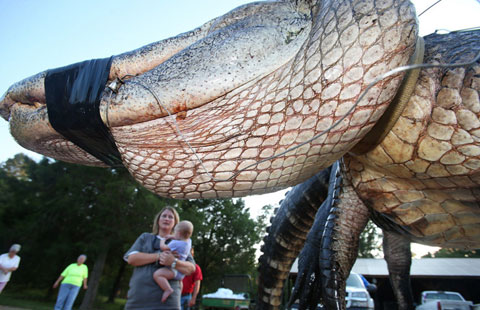Wetlands protection prioritized for environmental concerns
Updated: 2014-08-20 17:21
(Xinhua)
|
||||||||
HARBIN - A failed program to convert swathes of Northeast China's swampland into farms in the 1970s has proved a boon for one of the country's faltering bird species.
Vast expanses of wetlands in the Xinqing district of Yichun city in Northeast China's Heilongjiang province, once marked for development into agriculture, remain one of the most important habitats for hooded cranes in the country.
With less than 10,000 of the rare cranes left, they are listed as vulnerable on the International Union for the Conservation of Nature's red list.
 |
 |
"We feel very lucky. If the wetlands were converted into agriculture, it would no longer be home to the birds," he said.
It's one of many anecdotes in Liu's repertoire that stress the significance of wetland protection against continuing ecological threats.
In the past decade, 8.82 percent of wetlands have disappeared, converted to farmland or infrastructure.
During an ongoing tour to several wetlands in Northeast China's Heilongjiang province, Xinhua reporters found wetland protection has become the mainstream view among locals. The push by residents has spurred the local government's efforts for ecological protection through the ban of logging, fishing, and closure of surrounding factories.
The efforts have demonstrated the people's changing attitude toward wetlands, Liu said.
Sometimes referred to as the "Kidneys of the Earth," wetlands play a crucial role in helping preserve and filter natural water resources while offering a sanctuary for migrating birds and many other species.
The shift in attitude is a far cry from the local outlook 40 years ago.
In the 1960s, locals thought the wetlands were useless, draining them to grow crops. Farm yields were low and the practice was eventually abandoned, but not before inflicting huge damage to the wetland ecology.
Also home to the world's largest virgin forest of red pines, forestry was once a pillar for the local economy, acting as a main source of revenue and employment.

 Former Microsoft CEO Steve Ballmer leaves board
Former Microsoft CEO Steve Ballmer leaves board
 Top 10 most attractive Chinese cities at night
Top 10 most attractive Chinese cities at night
 Performances to celebrate Chinese Opera Legend
Performances to celebrate Chinese Opera Legend
 Missouri governor lifts Ferguson curfew
Missouri governor lifts Ferguson curfew
 Rebuilding lives
Rebuilding lives
 US dominates Chinese world university rankings
US dominates Chinese world university rankings
 Residents caught giant alligator in Alabama
Residents caught giant alligator in Alabama
 Chinese biotech company rings closing bell at NASDAQ
Chinese biotech company rings closing bell at NASDAQ
Most Viewed
Editor's Picks

|

|

|

|

|

|
Today's Top News
Antitrust probes 'won't deter investors'
Obama vows long-term strategy against ISIL
Ministry says trade growth needs help to reach 7.5%
Xi pledges to make China media more up to date
Missouri gov lifts Ferguson curfew
US police uses China's social media
China's US debt holdings dip lower, again
Anti-trust team lacks real muscle for enforcement
US Weekly

|

|







